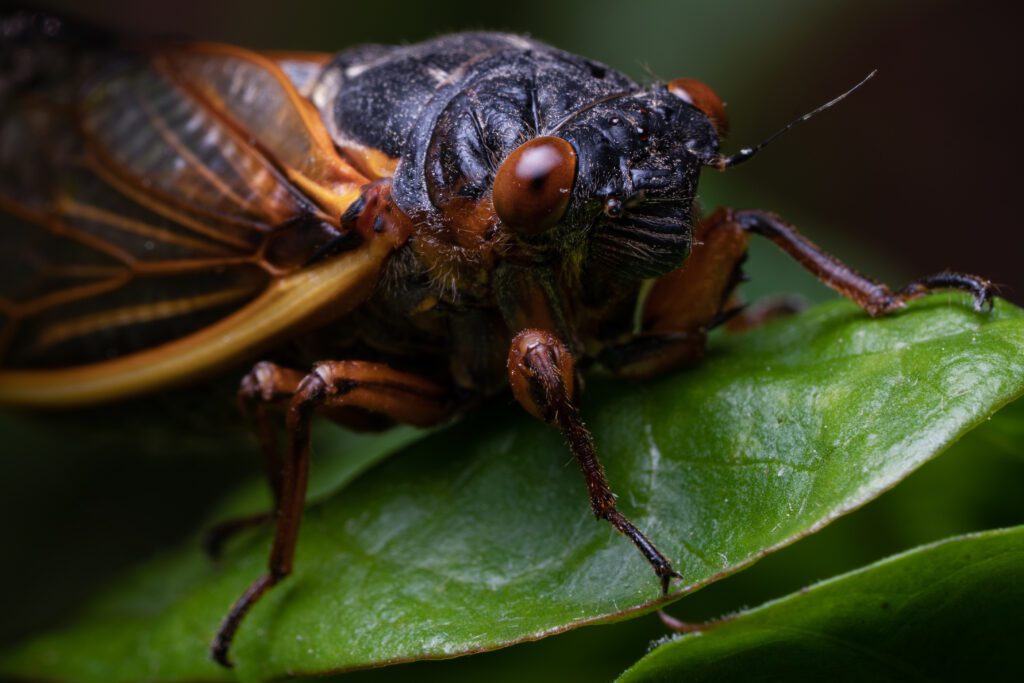
We’ve been getting lots of questions about the upcoming Periodical Cicada situation. Let’s talk about it! Here in WNC we will experience Brood XIX. These are different from our normal annual cicadas which normally awake in June and serenade us in summer; notably they have different songs.
In May, when the soil temperature hits 64°F, 8” beneath the surface, Periodical Cicada nymphs that have been quietly sipping the sap from tree roots will emerge and complete their life cycle. They will molt and turn into adults, the males will sing, the males and females will mate, and the females will lay eggs in weak and thin branches which will effectively prune them. In the next month the parent Cicadas will be happily devoured by birds and other wildlife, while in the next 6-10 weeks their eggs mature and drop from the branches down to the ground, where they will burrow into the soil to lazily sip the sap from tree roots for the next 13 years.
Cicadas, trees, and cicada-eaters have been in this mutual dance for several million years – but the Periodical Cicadas only exist in the eastern and central parts of the US and nowhere else on earth.
According to the North Carolina Extension Service, Cicadas are harmless to humans and pets, and rarely do major damage to plants. They can definitely do some pruning, which can mean that plants impacted will flush out fuller next year. Young fruit trees and young small fruits may in particular experience some damage.
If you wish to avoid this, you can use pond netting (best at 3/8″) or bird netting (5/8″) to try to protect your plants from eggs being laid in them. We carry netting in multiple sizes in our Garden Shop. Spraying is not recommended.
Further Reading:
https://buncombe.ces.ncsu.edu/2024/02/2024-cicada-emergence-faq/
https://pdic.ces.ncsu.edu/2024/02/the-cicadas-are-coming-fear-not-though/
